Immunomodulation of antigen presenting cells promotes natural regulatory T cells that prevent autoimmune diabetes in NOD mice
- PMID: 22355341
- PMCID: PMC3280284
- DOI: 10.1371/journal.pone.0031153
Immunomodulation of antigen presenting cells promotes natural regulatory T cells that prevent autoimmune diabetes in NOD mice
Abstract
Progression towards type 1 diabetes (T1D) in susceptible patients is linked to a progressive decline in the capacity of regulatory T cells (Treg) to maintain tolerance. As such, therapies aimed at redressing the failing Treg compartment have been the subject of intense investigation. Treg dysfunction in T1D has recently been linked to a reduced capacity of antigen presenting cells (APCs) to maintain Treg function rather than Treg intrinsic defects. This suggests that therapies aimed simply at addressing the failing Treg compartment are unlikely to provide long-term protection. Here, we demonstrate that modulation of the inflammatory status of CD11b+CD11c- APCs favors the upregulation of protective Tregs in a mouse model of T1D. We further demonstrate that reduced expression of the costimulatory molecule CD40 plays a role in this increased immunoregulatory capacity. Strikingly, Treg upregulation resulted exclusively from an increase in natural Tregs rather than the peripheral conversion of conventional T cells. This suggests that modulation of CD11b+ CD11c- APCs inflammatory properties favors the establishment of natural Treg responses that, unlike adaptive Treg responses, are likely to maintain tolerance to a broad range of antigens. As such, modulation of this APC subset represents a potential therapeutic avenue to reestablish peripheral tolerance and protect from autoimmune diseases such as T1D.
Conflict of interest statement
Figures
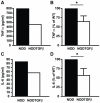
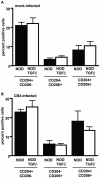
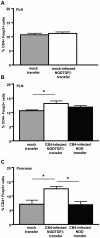
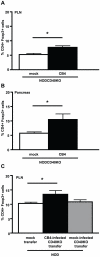
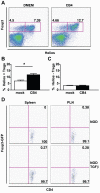
References
Publication types
MeSH terms
Substances
Grants and funding
LinkOut - more resources
Full Text Sources
Other Literature Sources
Medical
Research Materials
Miscellaneous

